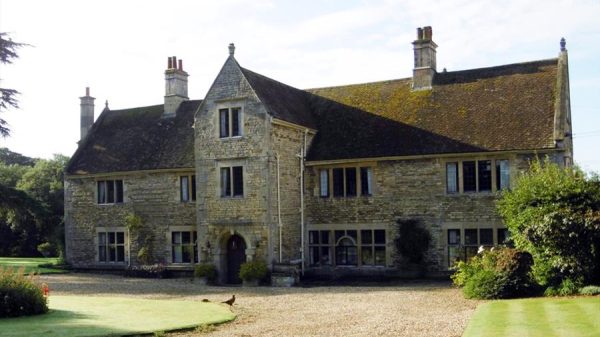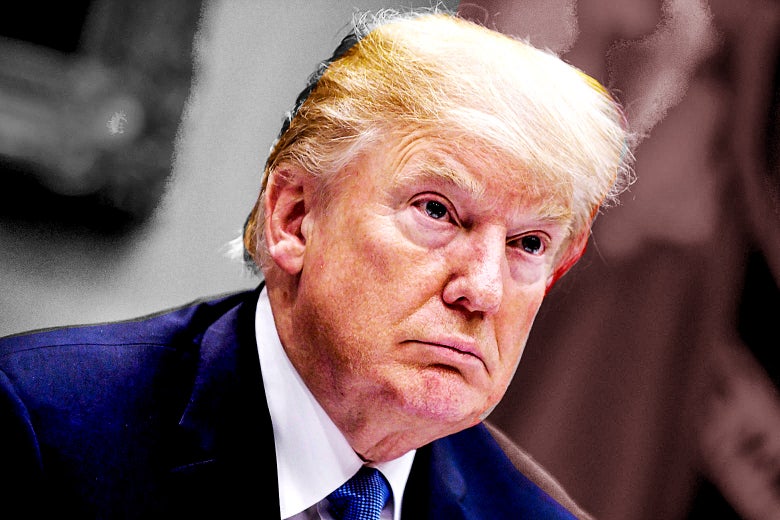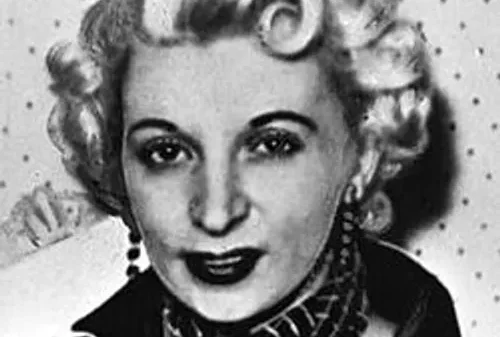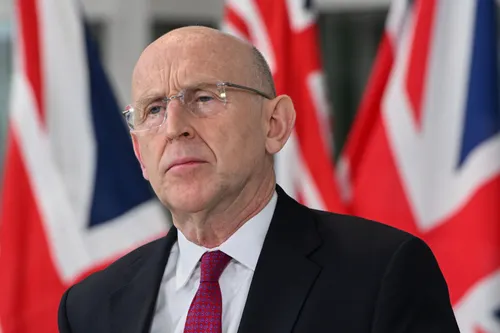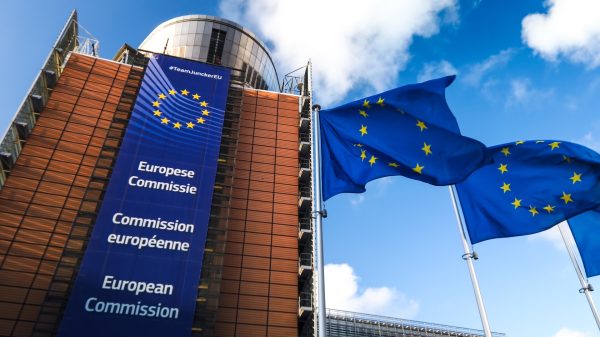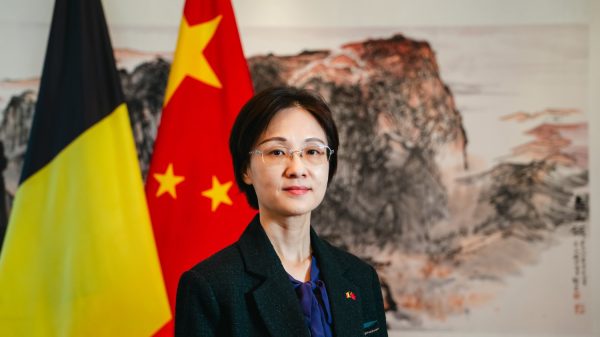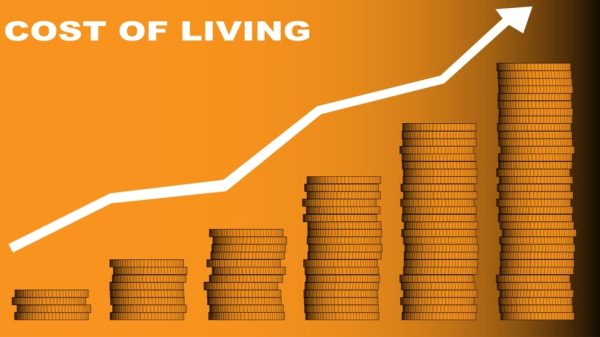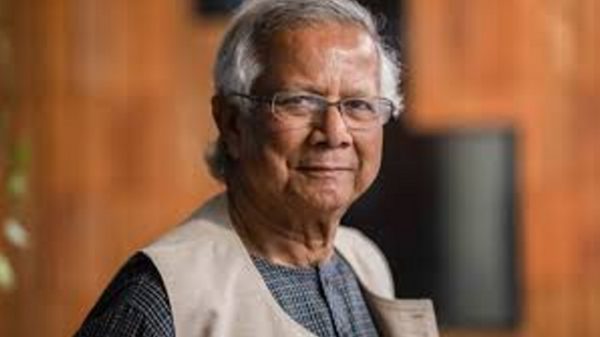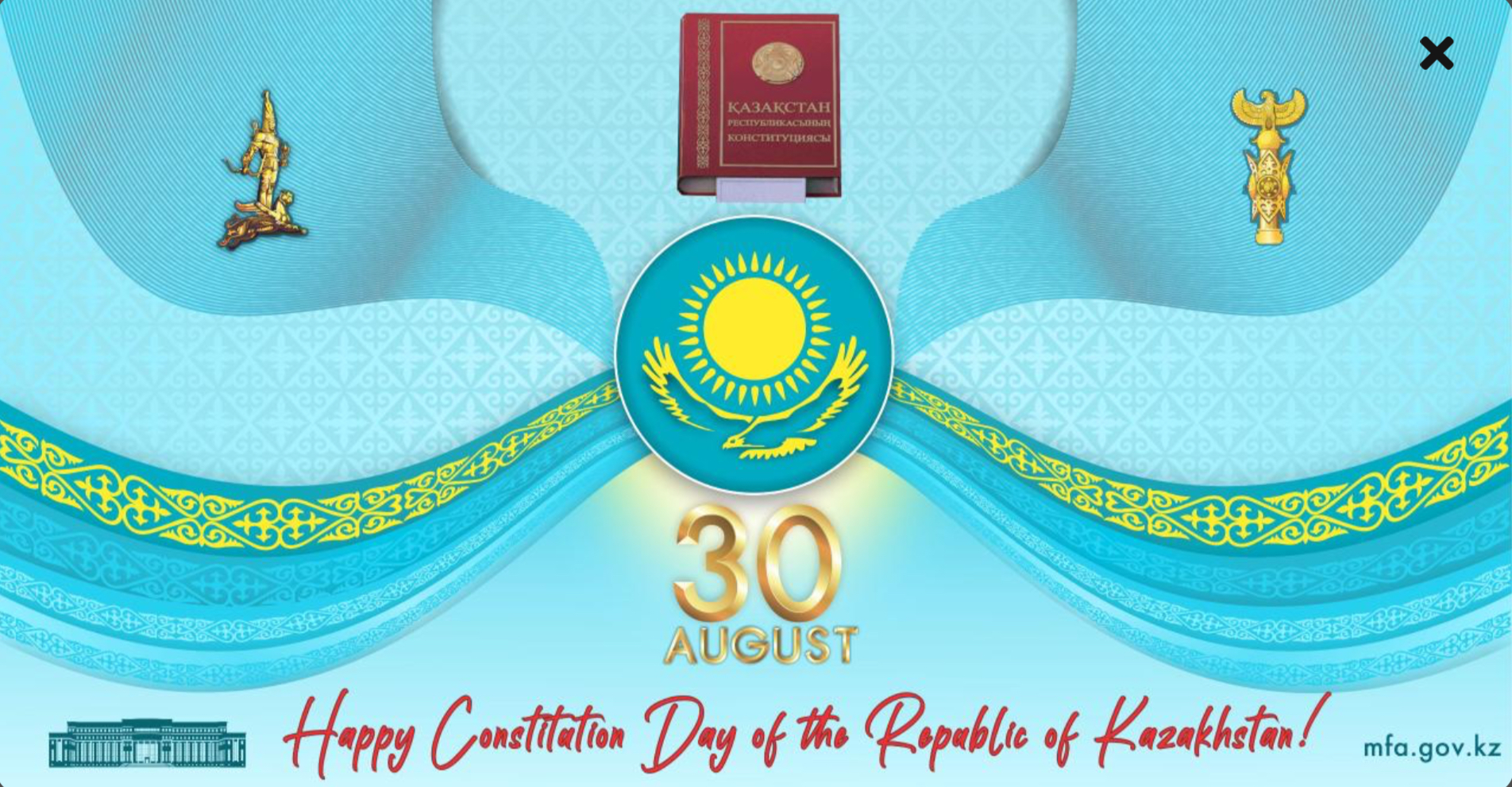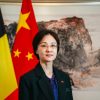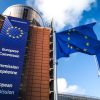Kazakhstan celebrates its Constitution Day on 30 August. It’s a public holiday when festivities, concerts and exhibitions across the country mark the adoption of the Kazakh Constitution in 1995. The decision in a referendum 28 years ago to establish the country as a democratic secular state remains a momentous one, when the ideals of freedom, equality and concord were proclaimed. However, the Republic’s highest legal text has been amended on five occasions, most recently and comprehensively in 2022, writes Political Editor Nick Powell.
The events of January 2022, when initially legitimate protests about fuel prices turned to lawlessness and violence, are rightly remembered in Kazakhstan as a tragedy. But the response of President Kassym-Jomart Tokayev was to accelerate democratic reforms, not reverse them as the ringleaders behind the violence seem to have hoped.
Nearly two years on, Kazakhstan continues to progress the political reforms that the President and his government initiated and to build truly democratic institutions, going deep into society and well beyond the important reforms to the roles of President and Parliament. Recently, State Counsellor Erlan Karin remarked how in those two years Kazakh citizens have elected 1,668 akims (heads of local government) in towns, villages and other settlements as part of the presidential political reforms.
A quarter of them are independents, the rest each backed by one of the political parties that have benefited from measures making it much easier for parties to be formed and to campaign. More than half the newly elected leaders are first-term office holders, with many of them from a new generation of younger local politicians; their average age is now 45.
Constitution Day on 30 August is an opportunity for the people of Kazakhstan -and all who are interested in that strategically important country- to reflect on the main principles of the constitutional amendments approved following a nationwide referendum in June last year. The reforms have transformed Kazakhstan and have ushered in new democratic principles.
More power and influence have been granted to parliament and to local government; presidential powers have been limited, strengthening the accountability of the government to parliament and to the people who elected it. The President of Kazakhstan is now elected for only a single seven-year term and cannot stand for re-election, a provision unique in Central Asia.
Protections of human rights and democracy have been strengthened by enhancing the role and status of the Ombudsperson for Human Rights, the Ombudsperson for children’s rights, and the Ombudsperson for protecting people with disabilities. The Constitutional Court has been re-established to ensure further protection of human rights and freedoms. Kazakhstan’s citizens can now directly apply to the Constitutional Court to declare unlawful measures that they believe contradict the principles of the Constitution.
The impact of the constitutional amendments was particularly visible during the parliamentary and local elections held in March 2023. Simplifying the process for registering political parties resulted in new parties such as Respublica and Baytaq taking part in elections considered by many domestic and international political experts to have been the most competitive in Kazakhstan’s modern history.
Six parties managed to pass the five percent threshold needed to get into parliament, which has created a truly multi-party representative body with different political views. The pace of change has been extraordinary, with five referendum and election campaigns in a year. A new civic and political culture has emerged in Kazakh society, thanks to the constitutional amendments and reforms.
Social, economic and other reforms remain a constant work in progress as Kazakhstan responds to the global changes, trends, and challenges that it continuously faces. With a third of the articles of the Constitution rewritten, Kazakhstan is essentially a new republic and politically a new nation.
Kazakhstan is a tolerant society, where every citizen, regardless of religious belief or ethnic origin, can feel valued and free. By ensuring freedom of speech, assembly and religion, as well as political diversity and personal liberty, the Constitution provides the blueprint for the country’s social, economic and political development.
In a recent visit to the country, a European Parliament Foreign Affairs Committee delegation met Members of Parliament, State Counsellor Karin, the Minister of Economy, and several deputy ministers, as well as representatives of civil society and the Commissioner for Human Rights.
German MEP David McAllister, who chairs the committee, said the visit to Kazakhstan and neighbouring Kyrgyzstan reconfirmed the need for the European Union to intensify its presence and involvement with countries in the strategically important region of Central Asia. “This is a period of challenges, but also opportunities, for developing our relations”, he added.
Mr McAllister welcomed the readiness of both governments to work with the EU to address the risk that their countries could be used to circumvent sanctions on Russia and Belarus. He stressed that the sanctions were aimed at the aggressors against Ukraine and not against the countries of Central Asia.
The MEPs were very interested in the potential for improving connectivity between Kazakhstan and Europe. “The Trans-Caspian corridor is an important alternative connection between Central Asia and Europe and facilitates direct access to the world markets without passing through countries under sanctions”, said David McAllister, who also stressed that the recently strengthening of cooperation between the EU and Kazakhstan in the area of critical raw materials could bring additional significant mutual benefits.
The MEPs welcomed the political and economic reforms in Kazakhstan and looked forward to their continuation. They emphasised the importance of civil society and independent media and expressed their support for staying on a course that respects human rights and fundamental freedoms.

